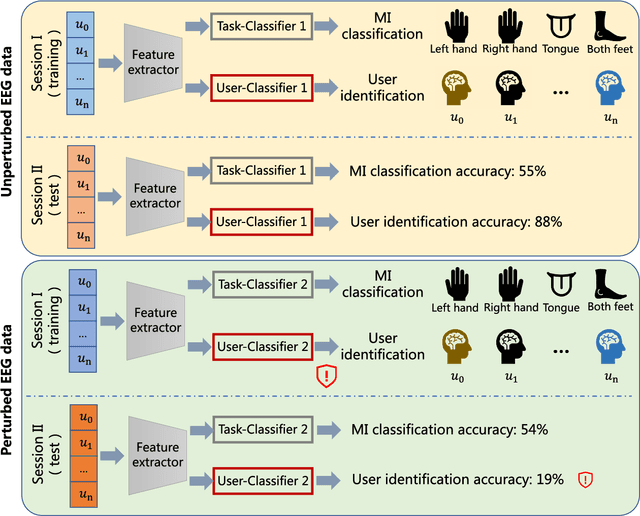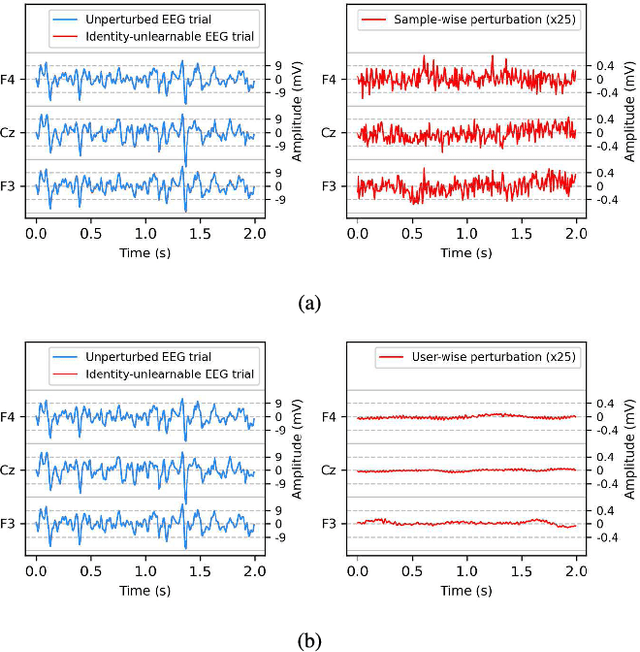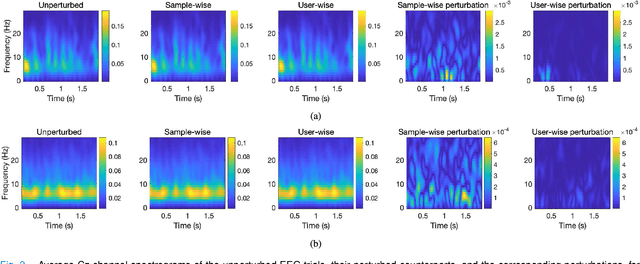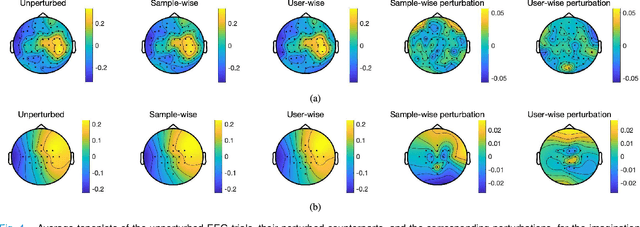X. Jiang
User Identity Protection in EEG-based Brain-Computer Interfaces
Dec 13, 2024



Abstract:A brain-computer interface (BCI) establishes a direct communication pathway between the brain and an external device. Electroencephalogram (EEG) is the most popular input signal in BCIs, due to its convenience and low cost. Most research on EEG-based BCIs focuses on the accurate decoding of EEG signals; however, EEG signals also contain rich private information, e.g., user identity, emotion, and so on, which should be protected. This paper first exposes a serious privacy problem in EEG-based BCIs, i.e., the user identity in EEG data can be easily learned so that different sessions of EEG data from the same user can be associated together to more reliably mine private information. To address this issue, we further propose two approaches to convert the original EEG data into identity-unlearnable EEG data, i.e., removing the user identity information while maintaining the good performance on the primary BCI task. Experiments on seven EEG datasets from five different BCI paradigms showed that on average the generated identity-unlearnable EEG data can reduce the user identification accuracy from 70.01\% to at most 21.36\%, greatly facilitating user privacy protection in EEG-based BCIs.
Local Contrastive Learning for Medical Image Recognition
Mar 24, 2023



Abstract:The proliferation of Deep Learning (DL)-based methods for radiographic image analysis has created a great demand for expert-labeled radiology data. Recent self-supervised frameworks have alleviated the need for expert labeling by obtaining supervision from associated radiology reports. These frameworks, however, struggle to distinguish the subtle differences between different pathologies in medical images. Additionally, many of them do not provide interpretation between image regions and text, making it difficult for radiologists to assess model predictions. In this work, we propose Local Region Contrastive Learning (LRCLR), a flexible fine-tuning framework that adds layers for significant image region selection as well as cross-modality interaction. Our results on an external validation set of chest x-rays suggest that LRCLR identifies significant local image regions and provides meaningful interpretation against radiology text while improving zero-shot performance on several chest x-ray medical findings.
 Add to Chrome
Add to Chrome Add to Firefox
Add to Firefox Add to Edge
Add to Edge